How to Transform Ideas into Paintings
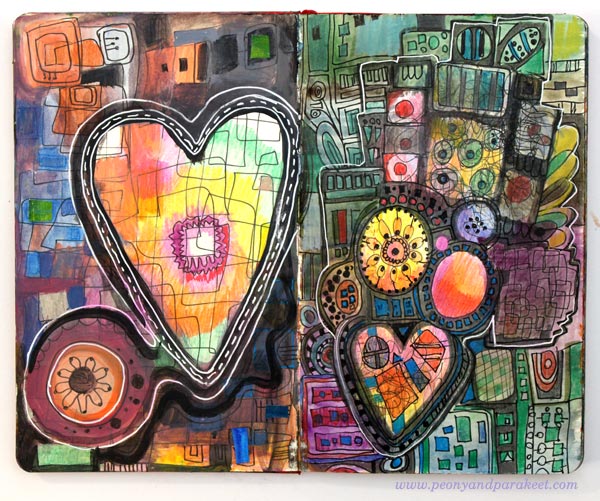
I am an idea person. When I get exposed to new things, my mind fills up with new ideas. Most of the ideas that pop into my mind are not that good. They are either too conventional or too radical. Some ideas are impossible to implement, and some have nothing to take on.
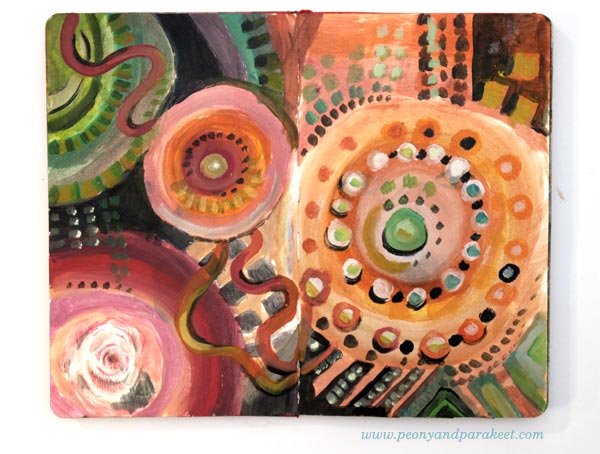
When I was a child, I happily filled the days playing with what came to my mind. But when I was studying computer engineering at a university, I became a master in shooting down my ideas. It may sound depressing, but it has led to a brilliant realization for me: the number of ideas doesn’t equal to the number of projects. When you have limited creative time, you don’t have to divide it with all your creative ideas.
Raw Ideas – Bad that Produce Good
When a new idea comes to your mind, call it “a raw idea.” If you get visual ideas, quickly sketch them on your journal. If they are more words than images, write them down. Don’t over-analyze your sketches, treat this just a routine that makes you move on and continue producing new ideas.
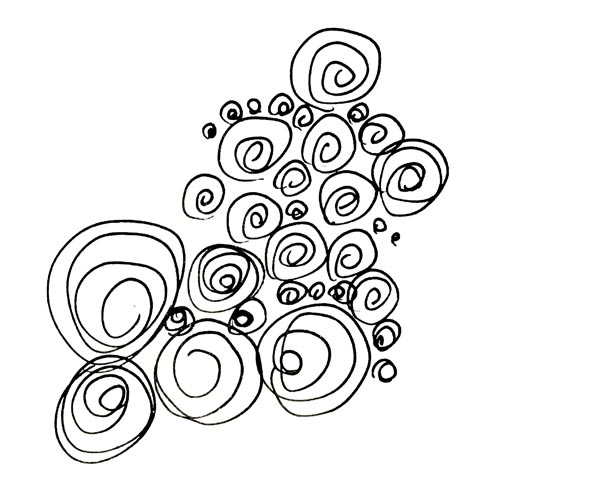
Raw ideas are often not so great, and you have to be careful not to spend too much time in implementing them. Raw ideas are like raw potatoes. Add some rosemary, salt, pepper, olive oil, carrots, onions, and zucchini and put them all in the oven for 30 minutes, and you will have a brilliant idea.
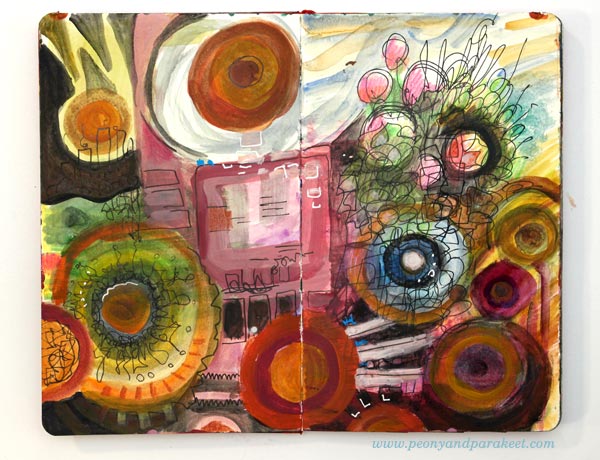
Many believe that getting new ideas is the thing. They fall in love with their raw ideas and then get disappointed with how they look on paper. But the essence of creating is in the processing. It’s about combining tens of ideas into one focused idea.
Record Everything!
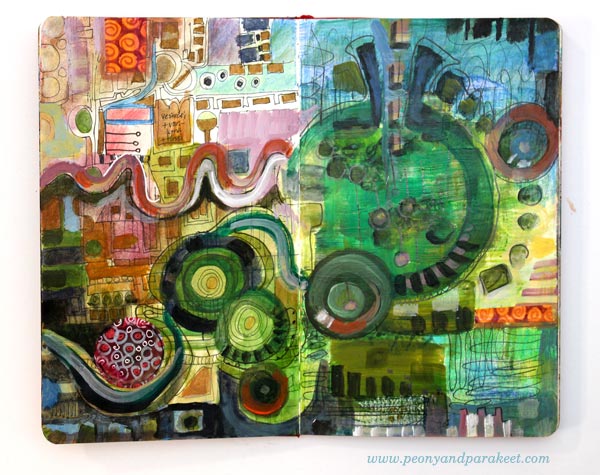
We humans are very similar to computers in one aspect. We have a limited capacity of processing unsaved ideas. If you never draw or paint or write down your ideas, the processing of them becomes difficult, almost impossible.
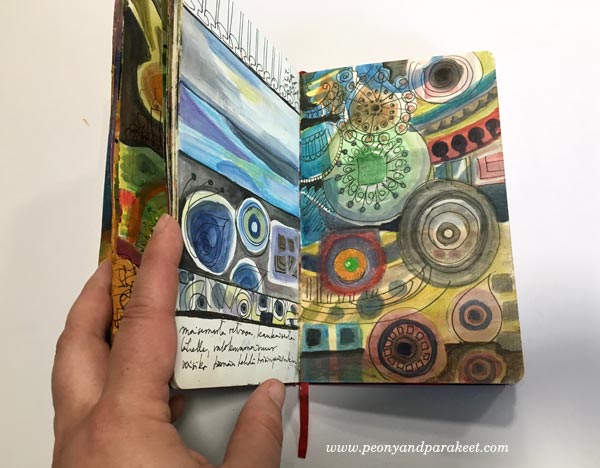
I often have an illusion that if I just think a little bit longer before I begin painting, l can start with better ideas. But then I remember that it’s just the opposite: when you see your raw ideas on paper, you can make them better. When you use the raw ideas to create the new painting, you can then visualize stories instead of creating single conventional elements.
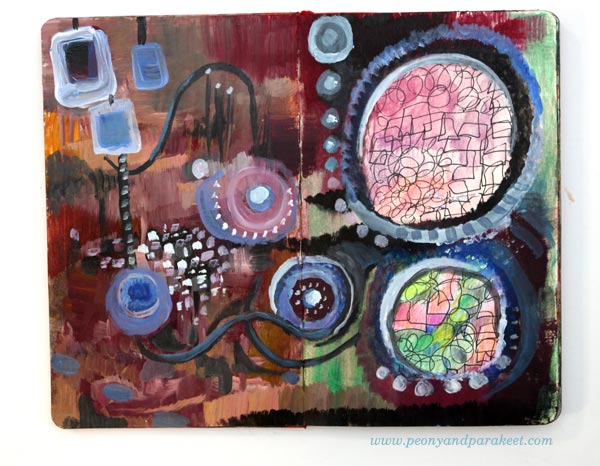
From a Disappointment to a Happy Art Journal Page
Here’s an example of how a conventional raw idea can turn into an expressive story.
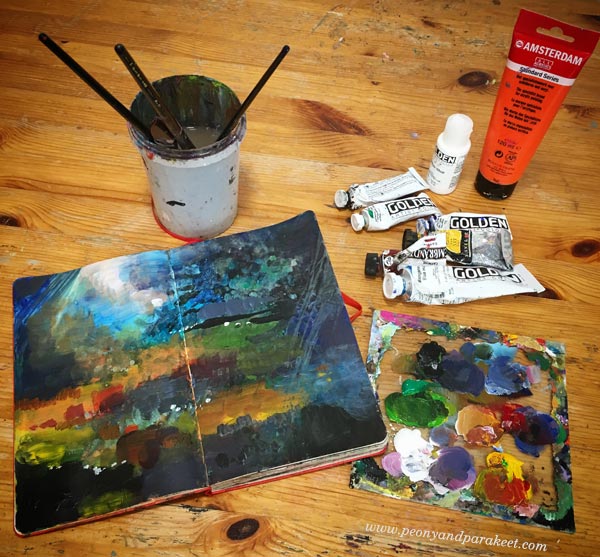
When I am finishing a painting session, there’s always the same problem: I still have paint on my palette. Have you confronted this too?
It doesn’t feel good just to wash it away, so I take one of my art journals, and use it up. I often feel tired already, and painting isn’t particularly inspiring, especially when there’s a limited amount of colors left on the palette. I made this gloomy landscape on one of those moments. The painting looked sad and empty. It felt like I had wasted my time for a lousy raw idea. But then, another day came, and I got the idea to add pastel elements in the dark painting.
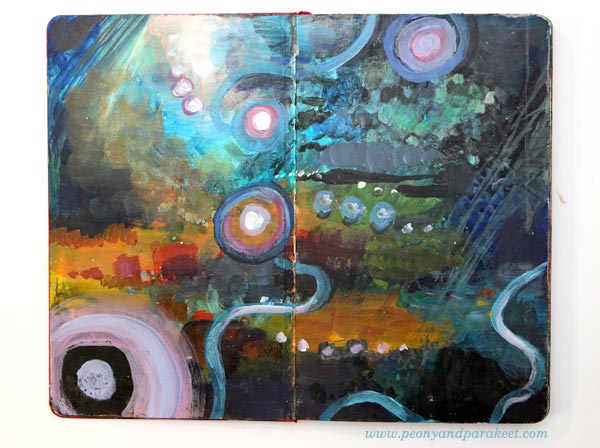
While painting, I remembered a television series, The X-files, that we used to watch with my boyfriend, now a husband, a long time ago. When an episode began, I always whistled the tune then grabbed my knitting. Although the episodes were terribly exciting, we always laughed at the whistling. The same mixture of suspense and happiness entered my spread after adding the pastel elements. The painting that had no real emotional connection became a reminder of a happy memory.
Ideas that Keep Coming Back
When you sketch ideas, you will also notice that most of them are very not different from each other.
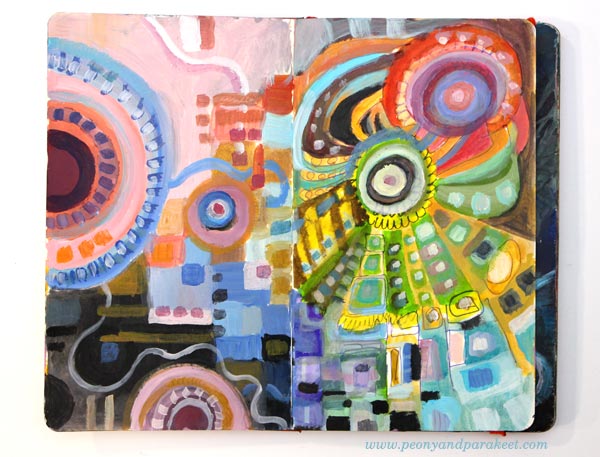
This similarity of ideas is fascinating. When I come up with the same idea again and again, I have to find out what’s behind it. Why does my mind repeatedly travel to the same place?
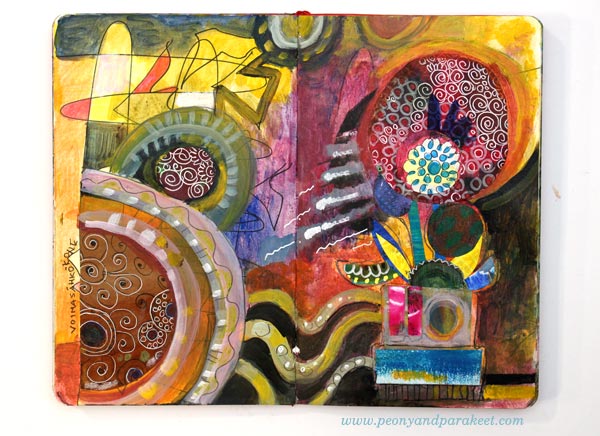
When preparing for the fall, I was about to release only one new painting workshop: Nature in Your Mind. It’s an online class where I have processed a lot of technique ideas to give you the very best experiences and results in painting. But while working with Nature in Your Mind, I had one more idea that I kept shooting down again and again. No matter how much I did that, it always came back. I saw color. I saw circles. And yes, I sketched them hundreds of times just to get rid of them! But then one day I said to myself: “Ok let’s find out what behind this idea.” So I discovered a compelling formula for creating abstract paintings so that you can fully enjoy painting with colors.
Planet Color – Get the 7-step Formula!
With the 7-step formula, you can release your mind and focus on color. You can create unique paintings while experimenting with unique color combinations. You can work with your raw ideas and combine them to a bigger picture. The workshop is called Planet Color, reserve your spot now!
Enjoy colors and release your mind!
>> Sign up for Planet Color!
12 thoughts on “How to Transform Ideas into Paintings”
Comments are closed.
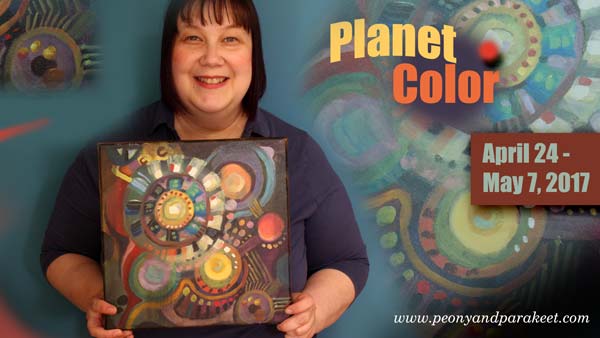
Thank you for this post. I can really relate.
Thanks, Phoebe!
Hi Paivi,
I think ideas are gifts. You’ve outlined the best steps to take to delve deep and experience the, wonder and magic. Thanks for the idea/ gift.
Thanks so much, Jada!
Very interesting post, thank you! and i have to say – i really liked the dark landscape painting too! 🙂
Thanks, Linda!
Your words are always as inspiring your paintings. As artists we need to make use of all our senses.
Thanks, Saundra! It’s always nerve-wracking to write as English is a foreign language to me. It’s so relieving to hear that I have been able to inspire!
your post solved this week’s dilemma. Thanks
Monica
Thank you, Monica! So great to hear that I was able to help!
This helps me on so many levels, Paivi; thank you so much. I’m going right out to buy myself an ideas journal in which I will give myself permission to doodle raw ideas, badly if necessary, just to process them. This procrastinator is going to stop leaving random scraps of paper around the house with ideas that never get followed up jotted on them. Now I see they are meant to be part of a process, not objects of neglect that accuse me when I come across them again. Thank you. 🙂
Your insight is so true, that’s exactly what I meant! Thanks for commenting!